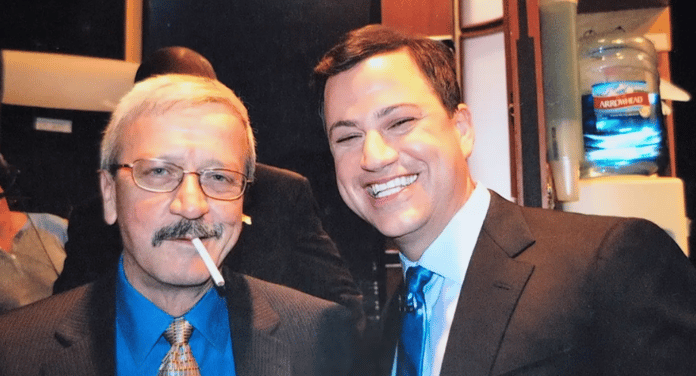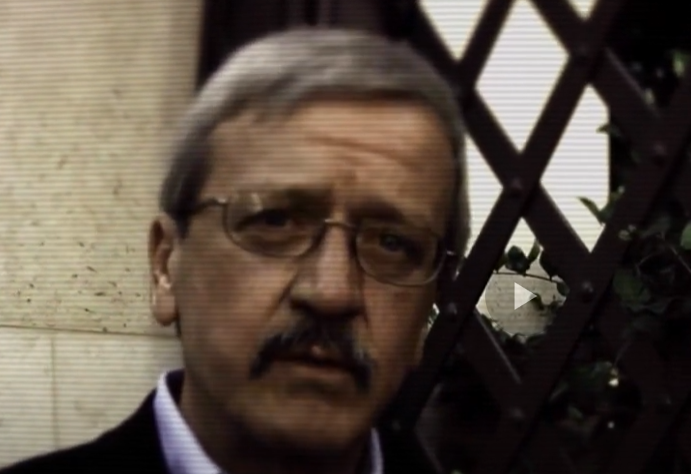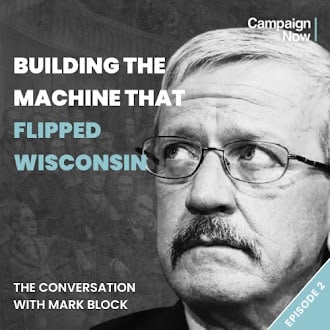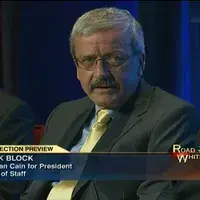How a pizza CEO, a viral cigarette, and a strategist named Mark Block helped preview the era of influencer politics.
What to Know:
- The 2011 “Smoking Man” ad stunned political media and made Herman Cain a viral sensation.
- Mark Block, Cain’s chief strategist, leaned into chaos and authenticity to grab attention.
- Cain’s outsider campaign briefly led the GOP field despite no political experience.
- The campaign’s low-budget, high-impact style foreshadowed Trump-era media tactics.
- Cain didn’t win, but his disruption helped invent the modern entertainer-candidate model.
Herman Cain's 2012 presidential campaign featured the "Smoking Man" ad, an early, impactful, and bizarre example of viral political media. What looked like a low-budget oddity quickly became a media phenomenon, propelling Cain to the top of the GOP field and sparking a new era of digital-first campaigning.
At the center of it all was Mark Block, Cain’s strategist and the man behind the cigarette. Campaign Now revisits this turning point in our three-part YouTube series and SoundCloud podcast, exploring how one unconventional ad previewed the rise of influencer politics and redefined what it means to run a modern campaign.
The Ad That Lit a Fire
In October 2011, an unassuming, low-budget video quietly uploaded to YouTube sent shockwaves through American political media. The ad featured Mark Block, Herman Cain’s chief of staff, staring solemnly into the camera, singing the praises of his candidate.
Then, without warning, Block took a slow, deliberate drag from a cigarette. As the music swelled, Cain’s face filled the screen, grinning in slow motion.
“We’ve run a campaign like nobody’s ever seen. But then, America’s never seen a candidate like Herman Cain.”
There were no flag pins. No smiling families. No professionally lit backdrops. Just smoke, sincerity, and weirdness. Political consultants were baffled. Late-night comedians mocked it. But millions watched it. And for a brief moment, Herman Cain’s campaign surged to the front of the Republican field.
Behind it all was Block’s raw media instinct: a willingness to break every rule in the book.
“I wanted people to stop and say, ‘What the hell did I just watch? And then share it. That was the goal. It worked.”
In just 56 smoky seconds, Block and Cain proved that authenticity, however offbeat, could outshine polish. It was political messaging stripped bare, where the strangeness became the strategy and virality became validation. Whether critics laughed or cringed, they watched. And in a crowded GOP primary, that was enough to make Herman Cain impossible to ignore.
Chaos as a Feature, Not a Bug
Cain’s campaign broke every rule. A former pizza executive with no political experience, he leaned into his outsider status, turning charisma into strategy. He presented himself not as a politician, but as an entertainer. His appeal stemmed not from his policies or background, but from his captivating presence, sharp wit, and commitment to authenticity.
In a fragmented media landscape, authenticity, even if unconventional, was a significant advantage, a truth Block, a pioneer of early grassroots data strategies in Wisconsin, recognized.
“The whole campaign was about being real. People were sick of canned answers and fake smiles. So we just decided to let Cain be Cain.”
That ethos produced moments of raw humor and unpredictability. Cain’s 9-9-9 tax plan was as easy to remember as it was controversial. His speeches felt more like stand-up than stump. And when asked if he would appoint Muslims to his cabinet, Cain said, "Not without loyalty tests."
It was chaotic. But it resonated.
“We weren’t trying to win the elite media. We were talking directly to people. And people loved that he wasn’t polished. He was just Cain.”
What the campaign lacked in polish, it made up for in personality. Cain’s unscripted, sometimes messy authenticity resonated with voters hungry for something different. In the noise of a crowded primary, it was the chaos that made him unforgettable.
Viral Before Virality Was Currency
Before TikTok influencers and Trump tweetstorms, Cain was testing the boundaries of political performance in digital-first culture. The "Smoking Man" ad wasn’t just bizarre; it was strategic.
“You gotta remember, we had no money. We weren’t going to buy Super Bowl airtime. So we had to do something that would get us into the bloodstream another way.”
Block knew the video would be mocked. He hoped it would be memed.
“Every time someone said it was the worst ad they’d ever seen, our views went up.”

Mark Block, Image via Betteridge 2012
Cain’s campaign embraced that energy. They turned low production value into a badge of honor. Cain's debate moments were shared and clipped endlessly. One debate response—"we need a leader, not a reader"—sparked outrage from policy wonks but delight from base voters. It foreshadowed the populist media tactics that would later become central to Trumpism: provoke, dominate the news cycle, and weaponize authenticity.
Disruption, Then Flameout
For a brief window, Cain topped national GOP primary polls. But his rise was followed by a hard fall. Allegations of sexual harassment from his corporate past surfaced. The media pounced. Cain denied wrongdoing but struggled to navigate the scandal in real time.
“We didn’t have a war room. We didn’t have media lawyers. We were just running this thing on guts and hope.”
By December 2011, Cain suspended his campaign. But the mark he left was undeniable.
“When Trump came along, people said he was a unicorn. But I thought: no, I’ve seen this before. I saw it in Cain.”
Block argues that Cain’s campaign laid the cultural groundwork for future populist disruptors. Not just because of what Cain said—but how he said it. The humor. The unpredictability. The ability to lean into being off.
“If you want to break through the noise, you'd better be noisy. Cain understood that. And we built everything around it.”

Cain’s exit didn’t erase his impact. His campaign became a blueprint for the political showmanship that would define the next decade. It was a mix of spectacle, spontaneity, and strategic chaos. While the headlines eventually faded, the template remained. Cain showed that disruption itself could be a form of dominance. In doing so, he helped write the opening chapter of a new era in American politics.
Legacy of a Smoking Man
Ten years later, the "Smoking Man" ad still pops up in political science classrooms and meme compilations. It remains one of the clearest early examples of post-optics campaigning: where polish loses to personality, and weird wins.
“I don’t regret it. Not one second. That ad made people pay attention. And once they did, they heard Cain. And they liked him. That was the point.”
Mark Block never expected to go viral. He didn’t plan to be a meme. But in that smoky 56 seconds, he and Cain cracked something open. They understood that modern politics had become as much about vibes as it was about votes. Though Cain didn't win the nomination, he captured the attention economy, foreshadowing the emergence of a new political archetype: the entertainer-disruptor-candidate.

Mark Block (left) with Jimmy Kimmel (right)
As Block put it:
“We weren’t early adopters of influencer politics. We were the prototype.”
Cain’s campaign may have ended, but its influence lingers. The "Smoking Man" ad served not only as a viral sensation but also as a significant warning. It revealed how political identity could be reshaped through spectacle, irony, and unapologetic personality. In the age of algorithm-driven politics, where authenticity and disruption often trump credentials and polish, Cain and Block were ahead of the curve.
Wrap Up
Herman Cain's 2012 campaign, guided by Mark Block, was more than a longshot bid. It was an early test of what modern politics would soon become. Cain's unconventional campaign, marked by authenticity, humor, and disruption, allowed him to briefly lead the Republican field despite limited funding and institutional backing. From the viral "Smoking Man" ad to the 9-9-9 plan, every move was designed to break through noise and connect with voters on a personal, emotional level. Cain's unconventional approach signaled a shift in how candidates could engage the public without playing by the old rules.
To explore this story in full, Campaign Now has launched a three-part video and podcast series detailing the rise and impact of the Herman Cain campaign, the Smoking Man ad, and the media playbook it helped invent. Watch on YouTube here and listen on SoundCloud here.





